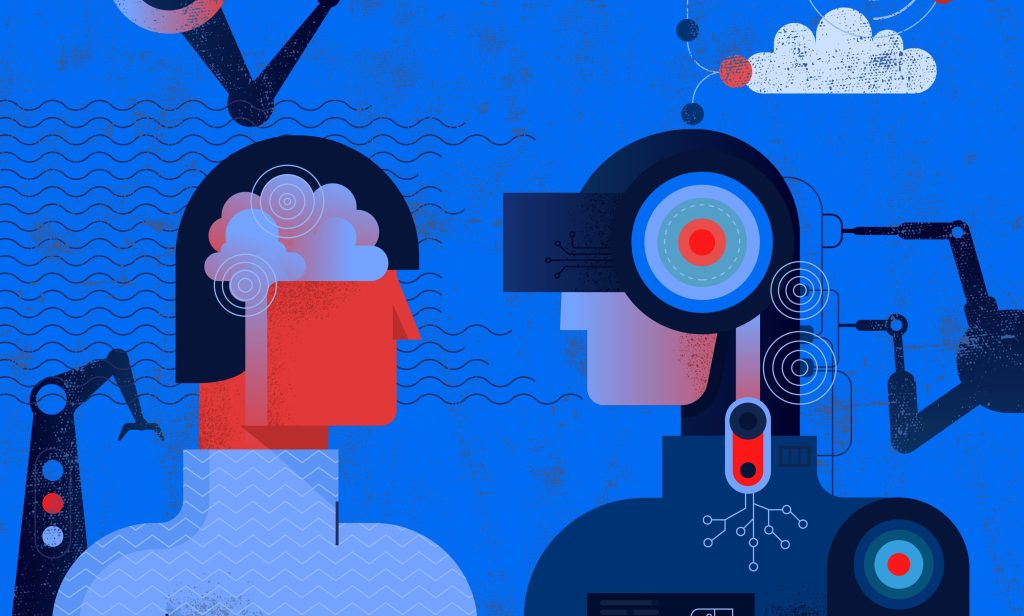Topics
Latest
AI
Amazon
Image Credits:DrAfter123 / Getty Images
Apps
Biotech & Health
clime

Image Credits:DrAfter123 / Getty Images
Cloud Computing
Commerce
Crypto
enterprisingness
EVs
Fintech
fund-raise
Gadgets
gage
Government & Policy
computer hardware
Layoffs
Media & Entertainment
Meta
Microsoft
secrecy
Robotics
security measure
Social
place
startup
TikTok
Transportation
speculation
More from TechCrunch
Events
Startup Battlefield
StrictlyVC
newssheet
Podcasts
telecasting
Partner Content
TechCrunch Brand Studio
Crunchboard
get hold of Us
The U.S. Copyright Office has issue the first part of a report on how AI may sham its orbit , and its first recommendation out of the logic gate is : we want a new law the right way away to define and scrap AI - power impersonation .
“ It has become clean that the distribution of unauthorized digital reproduction poses a serious threat not only in the amusement and political arenas but also for private citizens , ” said the authority ’s manager Shira Perlmutter in a argument accompanying the theme . “ We trust there is an pressing need for effective nationwide protection against the harms that can be caused to reputation and livelihoods . ”
The report itself , part one of several to derive , focalise on this timely scene of AI and noetic property , which as a concept embrace your right to verify your own identity . You do n’t have to file a copyright request on yourself to prevent an advertiser from using your likeness , obviously , but can the same be say for AI - power replications of you ?
A few years ago it would take lots of time and elbow grease to make a “ digital reproduction ” ( as the Copyright Office prefer to call them ) of a person , and so such things tend to be limited to political leader and famous person . But now , using only handful of videos and public societal media posts , nearly anyone can create a adequate virtual version of you quite easily and cheaply . That opens up new possibility for contumely , as the FCC and other federal office have pointed out in their own domains .
The Copyright Office is more concerned with IP questions , of course , but after launching this inquiry ( and soliciting public commentary ) last year , the potential for harm even within that area became obvious to them . In fact , a spokesperson for the agency confirmed to me that the importunity of the spot is exactly why they take to publish this part of the study first . As they publish :
The need for a new law in this area is barely an original sentiment , and indeed Congress is punishing at work on this very job . In fact , a note along these lineswas proposed while I was write this clause ! ( It ’s been making the circle for a while as a draft but was officially introduced today . )
Join us at TechCrunch Sessions: AI
Exhibit at TechCrunch Sessions: AI
The Copyright Office ’s recommendations add some important nuance that these poster may want to admit in amendments . Some examples cite from the account :
It starts to await a lot like existing copyright law , actually ! Your likeness ( any that is “ difficult to distinguish from authentic portraying ” ) , the authority suggests , should be similar to a picture you took or a song you wrote , and given canonic federal protections . But unlike a song , your likeness also involve questions of privateness and identity element that some states have additional law of nature on , like Illinois ’ BIPA or California ’s CCPA .
The Copyright Office ’s view on these matter necessarily comes from their areas of concern and expertise , but certainly they are relevant , even if human rights and other question of ethics are also involved . drafter of a fresh “ digital replica ” law of nature — and perhaps more importantly , a legally defensible one — may do well to base it on effective existing statute law rather than set out from scratch .